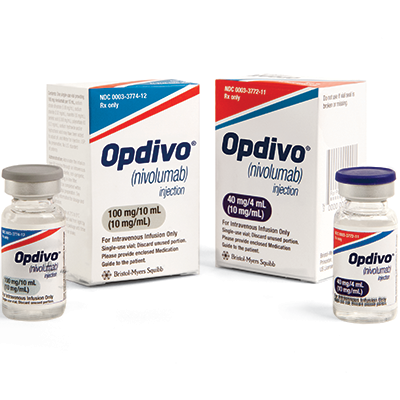FDA’s relatively quick approval of Opdivo (nivolumab) for treating advanced melanoma—coming just three months after Bristol-Myers Squibb’s filing—whittles down the lead time Merck’s Keytruda (pembrolizumab) has enjoyed since becoming the first US approved PD-1 drug for the disease back in September.
Merck now faces a rival with the same indication and labeling and with results that potentially give BMS an edge in melanoma. Cleared as a breakthrough therapy designation and with priority review under FDA’s accelerated approval program, Opdivo achieved response rates that improve on Keytruda’s. In one clinical trial among melanoma patients, 32% of patients saw shrinking tumors, with effects that lasted for more than six months in 13 patients. Keytruda achieved tumor shrinking in 24% of melanoma patients, according to the drug’s label.
BMS with partner Ono Pharma has already launched Opdivo in Japan.
“The earlier-than-expected green light [for Opdivo in the US] eliminates some of the time advantage Merck & Co. were not doubt hoping to enjoy with its rival immune-therapy Keytruda,” wrote EvaluatePharma in a briefing issued this morning.
“With seemingly little to differentiate the two anti-PD-1 antibodies now available in the US, timings [on on-going studies] are vital,” as the firms pursue indications in other cancers, the research firm added.
Opdivo is initially approved for treating unresectable or metastatic melanoma and disease progression following treatment with BMS’s other immuno-therapy cancer drug Yervoy (ipilimumab) and a BRAF inhibitor, in the case of a BRAF V600 mutation. Yervoy was approved for advanced melanoma in 2011.
Pricing for Opdivo is expected to be $12,500 a month, the same price as Merck charges for Keytruda, Evercore ISI analyst Mark Schoenebaum wrote in a note to investors last night.
“There are no surprises in the label. It is entirely what Wall Street expected,” Schoenebaum told MM&M by email.
Confidence in BMS as a leader in oncology will be one factor working in its favor as both firms look to develop the drugs for a range of cancer treatments, EvaluatePharma wrote. The research firm projects Opdivo will generate $6.6 billion in global sales by 2020, compared with $4.4 billion for Keytruda.
Those forecasts assume that Opdivo will be first between the two drugs to launch in lung cancer, a key indication in terms of generating bigger sales.
Both firms have also been testing their immunotherapy drugs on other cancer types; for instance, both companies reported highly promising results this month in treating Hodgkin’s lymphoma.
Several analysts have predicted that BMS should gain FDA backing in lung cancer early next year after results of an on-going Phase-III trial in squamous lung cancer.








